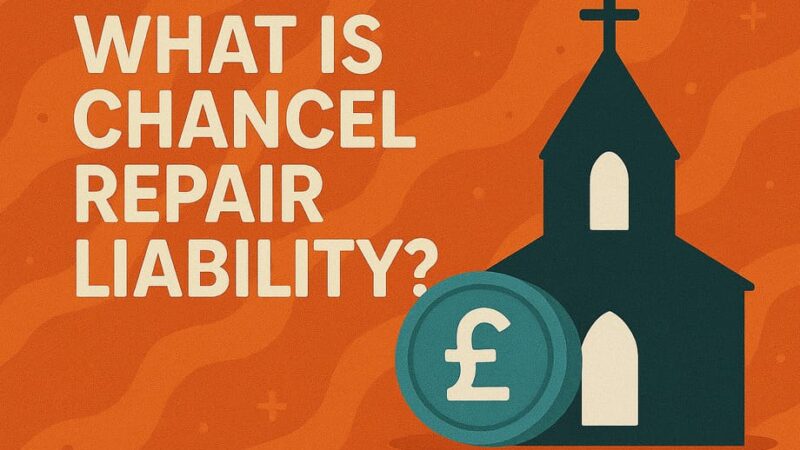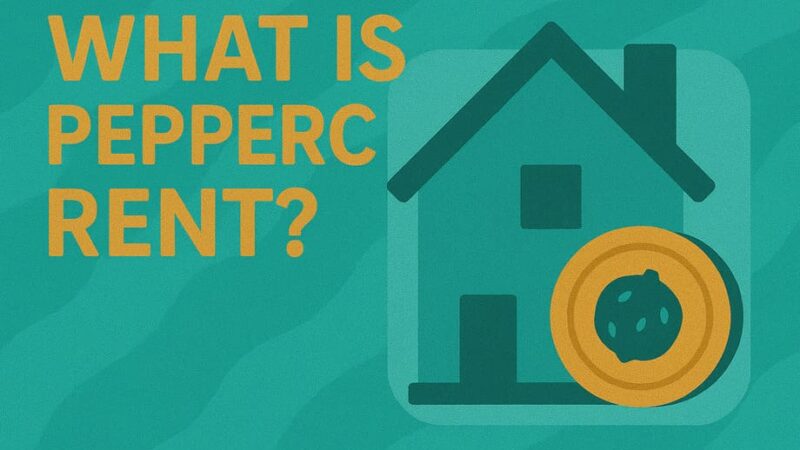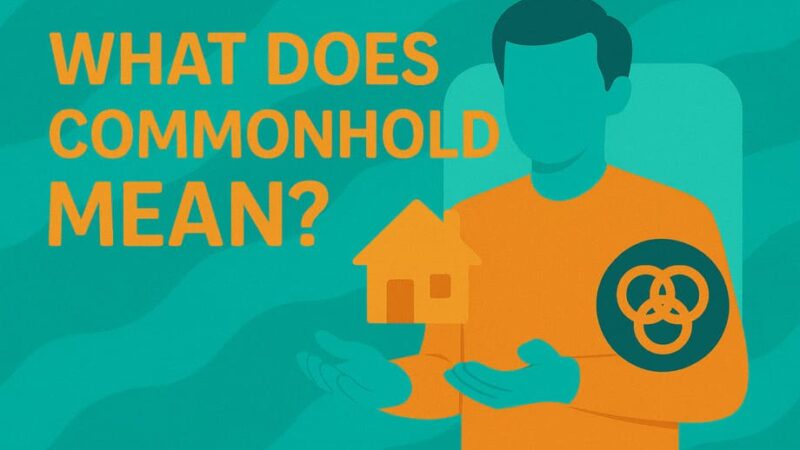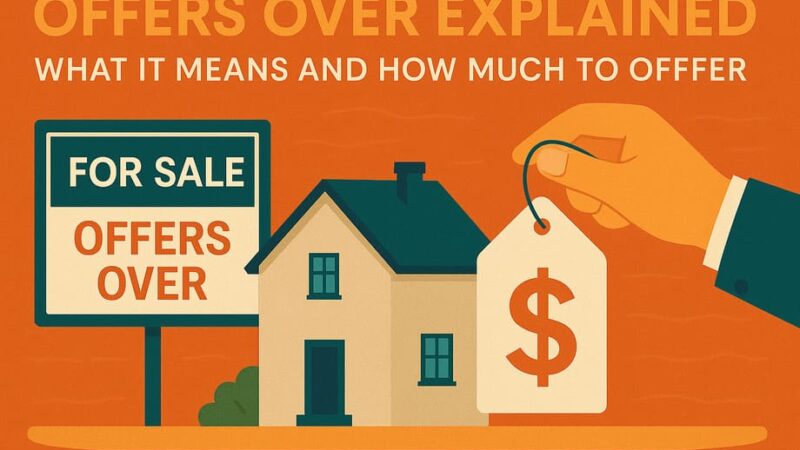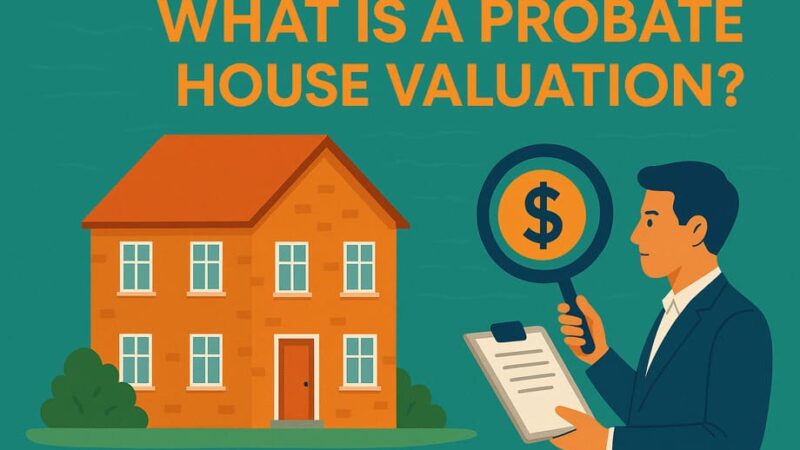What Is the Average Property Chain Length in the UK?
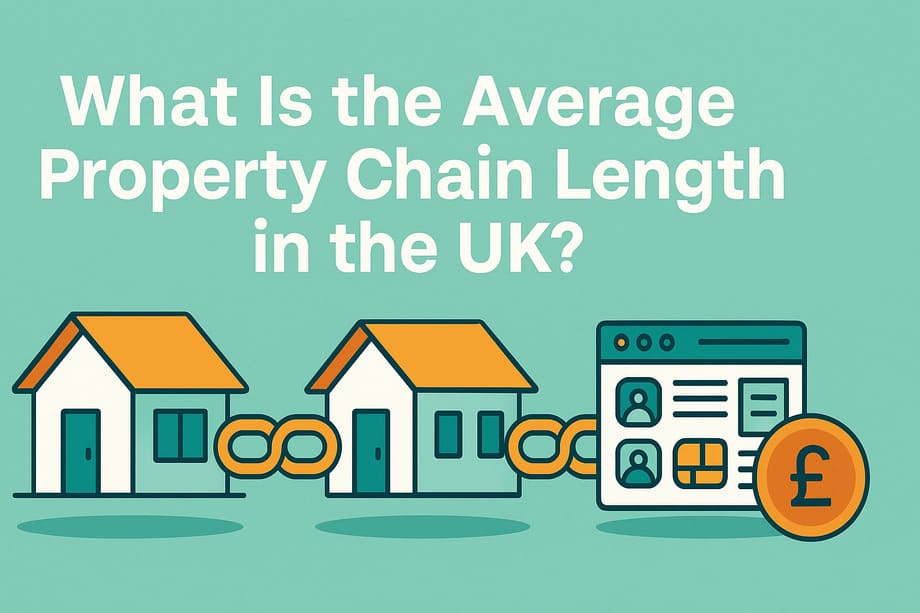
When buying or selling property in the UK, one of the biggest challenges you’ll face is the property chain. But what exactly is the average property chain length, and how long should you expect your house move to take?
If you’re planning to move house in 2025, understanding property chains is crucial for managing your timeline and expectations. With UK house prices continuing to rise and transaction volumes up 104.3% compared to last year, property chains are more common than ever.
Let’s explore everything you need to know about property chain lengths in the UK, from typical timelines to what causes delays and how to avoid them.
Understanding Property Chains
What is a Property Chain?
A property chain occurs when multiple property transactions are linked together, with each sale depending on another being completed. Most people need to sell their current home before they can buy their next one, creating these interconnected chains.
For example, if you’re selling your house to buy a bigger one, and your buyer also needs to sell their property to afford yours, you’re both part of the same property chain. Everyone in the chain must complete their transactions for anyone to move.
What Causes a Property Chain?
Property chains form because most people don’t have enough cash to buy their next home without selling their current one first. This creates a sequence of dependent transactions where:
- You need to sell your house to buy your next one
- Your buyer needs to sell their house to buy yours
- Their buyer might also need to sell, and so on
The chain continues until you reach someone who doesn’t need to sell first – usually a first-time buyer, cash buyer, or someone who has already sold.
What Does ‘No Onward Chain’ Mean?
‘No onward chain’ means the buyer doesn’t need to sell a property before purchasing yours. These buyers are highly desirable because they can proceed quickly without depending on other sales.
Chain-free buyers include:
- First-time buyers
- Cash buyers or investors
- People who have already sold their property
- Those buying a second home
How Long is the Average Property Chain?
The Average Property Chain Length in the UK
The average property chain in the UK typically involves 3 to 4 properties. However, chains can vary significantly in length:
- Simple chains: 2-3 properties
- Average chains: 3-4 properties
- Complex chains: 5+ properties
- Extreme cases: Some chains can involve 8 or more properties
Unfortunately, there’s no official government data on exact chain lengths, as the Office for National Statistics doesn’t track this information. However, industry experience and estate agent reports consistently show that most chains involve 3-4 properties.
How Long Do Property Chains Take to Complete?
The length of your property chain directly affects how long your house move will take:
Simple Chains (2-3 properties)
- Average completion time: 4 months
- Timeline includes mortgage approvals, surveys, legal work, and exchange of contracts
Complex Chains (4+ properties)
- Average completion time: 6 months or more
- Additional time needed for coordination between multiple parties
- Higher risk of delays and complications
Very Long Chains (5+ properties)
- Can take 6-12 months to complete
- Much higher risk of chain breakdown
- Require careful coordination and flexibility from all parties
What Problems Does a Property Chain Cause?
Delays
The main problem with property chains is delays. Each additional property in the chain increases the chance of hold-ups because:
- More mortgage applications to process
- More surveys and legal checks required
- More people who can change their minds
- More opportunities for problems to arise
If there’s a one-week delay at each stage in a chain of 4 properties, this could result in a month-long delay for everyone involved.
Chain Breakdown
Property chains are fragile – if any sale falls through, it can cause the entire chain to collapse. In the UK, 1 in 4 property sales fall through, often causing a domino effect that affects everyone in the chain.
Common reasons for chain breakdown include:
- Mortgage applications being rejected
- Survey revealing serious problems
- Buyers or sellers changing their minds
- Legal complications arising
- Changes in personal circumstances
Even first-time buyers, who are chain-free themselves, experience fall-throughs in 49% of cases due to problems higher up in the chain.
Factors That Influence Property Chain Length
Several factors affect how long property chains become and how long they take to complete:
Market Conditions
In active markets like 2025’s, with high transaction volumes, chains tend to be longer as more people are moving simultaneously. Competitive markets also mean:
- Buyers have fewer options, creating longer chains
- Sellers can be more selective about their next purchase
- More complex financing arrangements
Regional Differences
London and South East
- Longer average chains (4-5 properties common)
- More complex transactions due to high values
- More leasehold properties creating additional complications
Northern England and Scotland
- Shorter average chains (2-3 properties typical)
- More cash buyers due to lower property values
- Faster completion times
Property Types
Flats and Apartments
- Often involve leasehold complications
- May have more chain-dependent buyers
- Can take longer due to additional legal checks
Family Homes
- Typically involve families moving up or down the property ladder
- Often create longer chains as buyers have specific requirements
Buyer Demographics
First-time Buyers
- Chain-free but often buy from chain-dependent sellers
- May face delays from sellers who haven’t found their next home
Families Upsizing
- Often create longer chains due to specific property requirements
- May take longer to find suitable larger properties
Downsizers
- May create shorter chains but can be particular about their next home
- Often cash-rich, which can help speed up transactions
How Can I Avoid a Property Chain?
You Usually Can’t Completely Avoid Chains
The reality is that most property transactions involve chains to some degree. However, you can minimize chain-related risks:
For Buyers:
- Look for chain-free properties (new builds, vacant properties)
- Consider properties where sellers have already found their next home
- Be prepared to wait for the right chain-free opportunity
For Sellers:
- Try to attract chain-free buyers by pricing competitively
- Consider the timing of putting your property on the market
- Be prepared to be flexible with completion dates
Strategies to Break the Chain
Sometimes breaking the chain is the best option:
Sell First, Then Rent
- Sell your property and move into temporary rental accommodation
- Become a cash buyer for your next purchase
- Provides flexibility and stronger negotiating position
Bridging Loans
- Borrow money against your current property to buy the next one
- Allows you to buy before selling
- Higher interest rates but can prevent chain breakdown
Consider Chain-Free Options
- New build properties often have no upward chain
- Investment in areas with more cash buyers
- Properties that have been on the market longer may have motivated sellers
What to Expect: Timeline for Different Chain Lengths
2-3 Property Chain Timeline
Weeks 1-4: Offers accepted, mortgage applications submitted Weeks 5-8: Surveys conducted, legal searches begun
Weeks 9-12: Mortgage offers received, contracts ready Weeks 13-16: Exchange and completion
Total time: 3-4 months
4+ Property Chain Timeline
Month 1: Multiple offers accepted across the chain Month 2: Mortgage applications and initial legal work Month 3: Surveys and detailed legal searches Month 4: Resolving any issues that arise Month 5: Contract exchanges across the chain Month 6+: Completion and potential additional delays
Total time: 6+ months
Tips for Managing Property Chains
Stay Informed
- Keep in regular contact with your estate agent and solicitor
- Ask for weekly updates on progress
- Know who else is in your chain and their timelines
Be Prepared
- Have all your documentation ready
- Get your finances in order early
- Consider getting a mortgage agreement in principle
Stay Flexible
- Build buffer time into your moving plans
- Have backup accommodation options ready
- Be prepared to negotiate on timelines with others in the chain
Consider Professional Help
- Choose experienced solicitors who handle chains regularly
- Work with estate agents who communicate well
- Consider using a removal company that offers storage options
When Chains Go Wrong
Warning Signs
Watch out for these red flags that might indicate chain problems:
- Communication from other parties becomes sporadic
- Repeated delays in mortgage approvals or surveys
- Someone in the chain hasn’t found their onward purchase
- Legal complications that aren’t being resolved quickly
What to Do if Your Chain Breaks
Don’t Panic
- Chain breakdowns are common and often fixable
- Sometimes new buyers can be found quickly
- Your solicitor and estate agent should help coordinate solutions
Consider Your Options
- Wait for the chain to be rebuilt
- Look for alternative properties
- Consider breaking the chain yourself
- Negotiate with other parties to find solutions
Protecting Yourself
Insurance Options
- Home buyer’s protection insurance covers costs if your purchase falls through
- Consider legal expenses insurance for additional protection
Financial Planning
- Don’t spend money you can’t afford to lose on surveys and legal fees
- Keep some savings available for alternative accommodation if needed
The Reality of Property Chains in 2025
Current Market Conditions
With property transactions significantly up in 2025 and continued high demand, property chains are likely to remain a common feature of the UK housing market. The average chain length of 3-4 properties is unlikely to change significantly.
What This Means for You
If You’re Buying:
- Expect your move to take 4-6 months if you’re in a chain
- Be prepared for potential delays and complications
- Consider the benefits of chain-free properties even if they cost slightly more
If You’re Selling:
- Chain-free buyers will always be more attractive
- Price competitively to attract multiple offers
- Be flexible with timing to keep your chain together
Conclusion
The average property chain length in the UK is 3-4 properties, with simple chains taking around 4 months to complete and more complex chains extending to 6 months or longer. While you can’t always avoid property chains, understanding how they work and preparing properly can help ensure your move goes as smoothly as possible.
Remember that 1 in 4 property sales fall through, so it’s important to have backup plans and stay flexible throughout the process. With good communication, realistic expectations, and experienced professionals supporting you, most property chains do complete successfully.
Whether you’re dealing with your first property chain or you’re an experienced mover, the key is to stay informed, be prepared for delays, and maintain good communication with everyone involved in your chain.
Moving house is stressful enough without chain complications – but with the right preparation and realistic expectations, you can navigate even complex property chains successfully.
Last Updated on August 26, 2025 by James Cartwright


